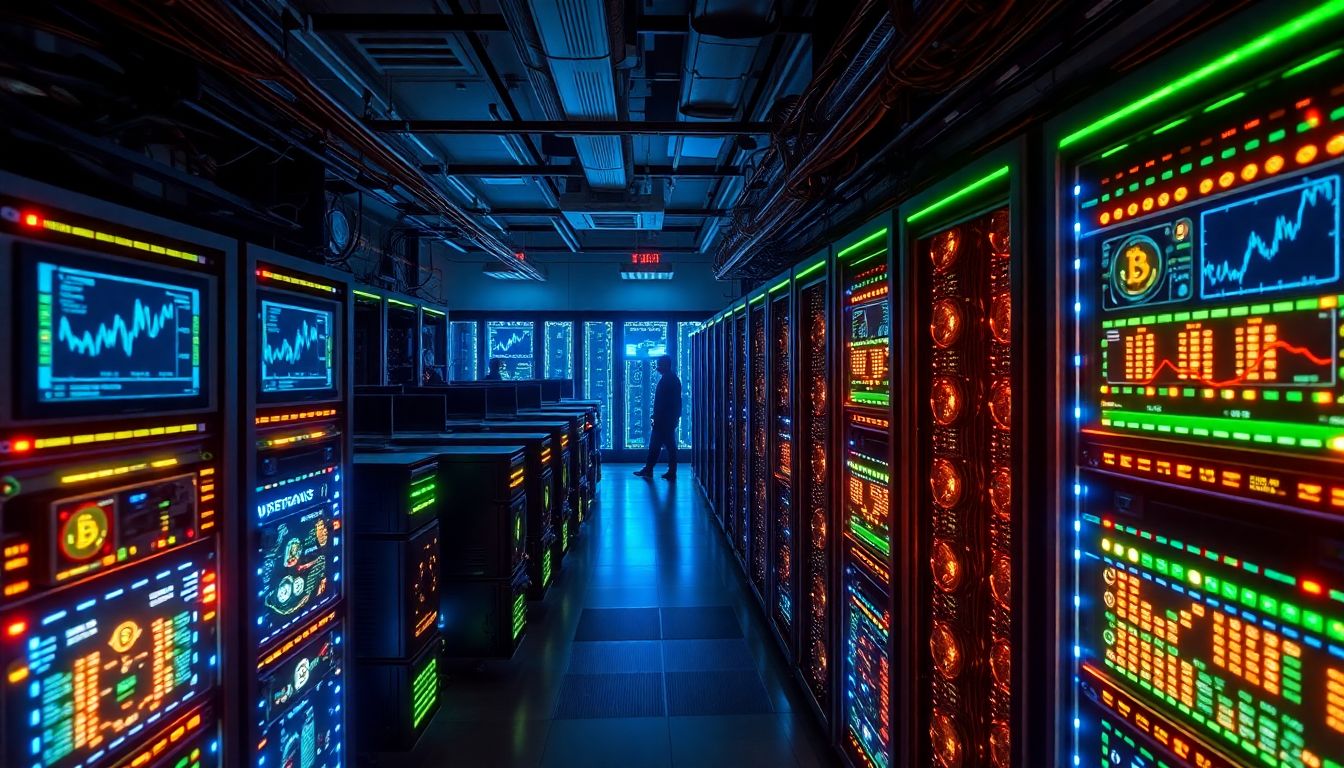
Introduction
Cryptocurrency mining is like unlocking the power behind Bitcoin and other digital currencies. It keeps blockchain networks open and secure, making sure that digital money stays safe and trustworthy. As interest in cryptocurrencies grows, understanding how they are mined becomes more important. People are investing, environmental issues are gaining attention, and new technologies are changing the game. Knowing why mining matters helps us see the bigger picture of how digital currencies work and affect our world.
What Is Cryptocurrency Mining?
Definition and Basic Concept
Cryptocurrency mining is the process of confirming transactions and adding them to the blockchain, which is like a public digital ledger. Think of it as mining for gold or other valuable minerals but in the digital world. Miners gather transaction data and verify it, turning the blockchain into a trustworthy record of who owns what. It’s a way of extracting value from computer power and effort.
How Mining Supports Blockchain and Cryptocurrency Ecosystems
Miners are the backbone of blockchain networks. They prevent double-spending, fraud, and hacking by keeping the system secure. When miners solve a puzzle or verify transactions, they earn new coins as a reward, which creates new cryptocurrency units. This process helps keep the network healthy and growing.
Types of Cryptocurrencies That Rely on Mining
Bitcoin is the most famous example of a cryptocurrency that relies on mining. Ethereum also used mining until its switch to proof-of-stake. Other well-known mined coins include Litecoin, Bitcoin Cash, and Monero. Different cryptocurrencies use various ways to verify transactions, called consensus mechanisms, like proof-of-work and proof-of-stake.
The Technical Process of Cryptocurrency Mining
Proof-of-Work (PoW) Mechanism
Proof-of-work is the most common method in crypto mining. It asks miners to solve complex math puzzles that require lots of computer power. The first one to solve the puzzle gets to add a new block to the blockchain and earns rewards. This system makes hacking or cheating the network very hard because it’s expensive and needs a lot of effort.
Mining Hardware and Technology
Mining demands special hardware. The most popular options include:
- ASICs (Application-Specific Integrated Circuits): Fast and efficient, designed specifically for mining.
- GPUs (Graphics Processing Units): Powerful chips that excel at processing large data sets.
- CPUs (Central Processing Units): Used less often now but still useful for some coins.
Advancements in hardware mean miners can do more work faster, but it also raises costs and energy use.
Mining Software and Network Participation
Mining software connects hardware to the blockchain network. Well-known options like CGMiner and BFGMiner help miners manage their operations. Many join mining pools, where many miners combine resources to increase their chances of earning rewards. Pool sharing makes mining more stable and predictable.
Why Cryptocurrency Mining Matters
Maintaining Network Security and Integrity
Mining plays a key role in keeping cryptocurrencies safe. It stops hackers from spending the same coin twice and makes fraud nearly impossible. When miners do their work, they help preserve the decentralized and open nature of blockchain, preventing any single person or group from controlling the system.
Economic Impact and Incentives
Miners earn rewards in the form of coins and transaction fees. This creates a huge economic activity worldwide. Large mining farms operate in countries where energy is cheap, and they generate billions of dollars every year. These operations influence markets and can even affect global energy consumption.
Environmental and Energy Concerns
Mining requires a lot of electricity, especially for proof-of-work systems like Bitcoin. This high energy use has raised concerns about pollution and environmental damage. Critics say it’s not sustainable, prompting debates on finding greener solutions. Some miners now use renewable energy or switch to less energy-intensive methods like proof-of-stake.
Innovation and Industry Development
Mining drives technological progress. Better hardware, cooling systems, and energy solutions come from the need to mine efficiently. Big mining farms have helped develop entire industries around blockchain tech and renewable energy. These innovations often spread into other areas of tech and business.
Challenges and Future of Cryptocurrency Mining
Regulatory and Legal Issues
Different countries treat crypto mining differently. Some welcome it; others ban or restrict it. Regulations can change quickly, putting miners at risk of losing their investments. Governments are trying to find ways to keep the industry safe without harming innovation.
Industry Challenges
Volatility in crypto prices, rising hardware costs, and expensive energy make mining tough. Centralization is also a concern, as large farms control significant parts of the network. This risks destroying the decentralized spirit of cryptocurrencies.
Trends and Future Outlook
The future of mining looks toward greener energy sources and more sustainable methods. Proof-of-stake is gaining popularity as it uses less energy. Also, new hardware and regulations will shape how and where mining happens in coming years. Expect more innovation aimed at balancing security, profit, and impact on the environment.
Key Takeaways
Cryptocurrency mining is vital for keeping blockchain networks running smoothly and securely. It creates an economy around digital currencies and pushes technological limits. But it also faces concerns about environmental impact and regulation. As the industry moves forward, new solutions and regulations will shape how we mine and use cryptocurrencies. Staying informed helps us understand what’s next for digital money and its role in our world.
Conclusion
Mining isn’t just about finding coins—it’s the engine behind the security and growth of cryptocurrency networks. It keeps digital currencies trustworthy, sparks innovation, and creates opportunities for many. Yet, it also challenges us to think about sustainability and fairness. As cryptocurrencies continue to develop, understanding the ins and outs of mining helps us be prepared for the future of finance and technology.







0 Comments